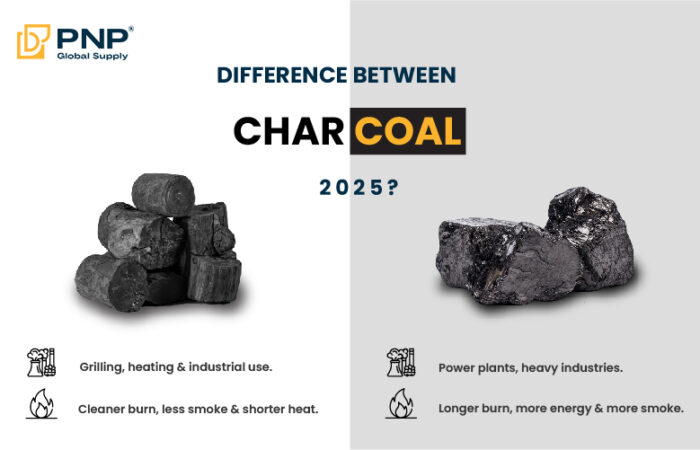Charcoal, a versatile carbon-rich material obtained from the controlled burning of wood in low-oxygen conditions, has been an essential resource for centuries. It is primarily used for cooking, heating, and as a key ingredient in various industrial applications. As global markets evolve, the international charcoal trade has gained momentum, fueled by increasing consumer awareness about sustainability, the push for eco-friendly products, and changing culinary trends. This article provides an in-depth analysis of the current trends, challenges, and opportunities in the global charcoal market.

1. Charcoal consumption Trends
1.1 Growing Demand for Charcoal
The global demand for charcoal is on the rise, particularly in developing regions. Several factors contribute to this trend:
- Population Growth: The world’s population is projected to reach approximately 9.7 billion by 2050, with significant increases in regions such as Africa and Asia. This demographic shift leads to heightened energy demands, particularly in areas where charcoal is a primary fuel source for cooking and heating (United Nations, n.d., retrieved from United Nations Population).
- Urbanization: Rapid urbanization in countries like India, Nigeria, and Brazil is increasing the demand for affordable and efficient cooking solutions. Charcoal remains a staple in many households due to its accessibility and cost-effectiveness.
- Economic Development: As economies grow, there is a rising middle class in many developing countries. This segment tends to favor quality products, leading to increased demand for premium charcoal, particularly for grilling and barbecuing.
https://www.fortunebusinessinsights.com/charcoal

1.2 Shift Toward Sustainable Products
Consumer awareness around environmental issues is leading to a marked shift toward sustainable and ethically sourced products. This trend is reflected in:
- Eco-friendly Production Methods: There is a growing preference for charcoal produced from sustainably managed forests, agricultural residues, and waste materials. This not only reduces deforestation but also promotes the use of renewable resources.
- Sustainability Certifications: Charcoal products that obtain certifications such as FSC (Forest Stewardship Council) or other eco-labels gain a competitive advantage in the market. Consumers are increasingly willing to pay a premium for products that align with their environmental values.

1.3 Changing Consumer Habits
The evolving preferences of consumers are shaping the charcoal market:
- Barbecue and Outdoor Cooking Trends: The rise of barbecue culture, especially in Western countries, has significantly boosted the demand for high-quality charcoal. Events such as tailgating, summer barbecues, and outdoor parties have become mainstream, driving sales in this sector.
- Health and Wellness Trends: There is a growing focus on healthy cooking practices. Many consumers are shifting toward natural and organic products, viewing charcoal as a healthier alternative to processed fuels. The trend of using charcoal in culinary applications, such as in artisanal food products, is also gaining traction.
- Social Media Influence: Platforms like Instagram and Pinterest have popularized cooking and outdoor grilling, showcasing the aesthetic appeal of charcoal-cooked meals. This trend drives consumers to seek out high-quality charcoal to enhance their cooking experiences.

2. Challenges in the Charcoal Market
2.1 Climate Change Impacts
Climate change poses several challenges to the charcoal industry:
- Resource Availability: Changes in climate patterns, such as increased frequency of droughts and forest fires, can lead to reduced availability of quality wood for charcoal production. This can result in supply shortages and increased prices.
- Environmental Regulations: The charcoal production process can contribute to greenhouse gas emissions, leading to stricter regulations aimed at reducing carbon footprints. Producers must adapt to these regulations, which may involve costly changes to production methods.

2.2 Regulatory Constraints
Governments around the world are implementing regulations to ensure sustainable practices in the charcoal industry:
- Sustainability and Sourcing Regulations: Many countries require proof of sustainable sourcing for raw materials used in charcoal production. Compliance with these regulations can increase operational costs for producers.
- Health and Safety Standards: Charcoal production must meet various health and safety regulations, especially regarding emissions. Adapting to these standards requires investment in cleaner technologies and practices.
2.3 Competition from Alternative Energy Sources
The charcoal market is increasingly competing with alternative fuels:
- Natural Gas and Electric Grills: The convenience and efficiency of natural gas and electric grilling options can sway consumers away from traditional charcoal. The growth of electric grills and portable gas stoves presents significant competition, particularly in urban areas.

- Renewable Energy Sources: The rise of renewable energy options, such as solar and wind power, is reshaping consumer energy choices. Some households are opting for electric cooking methods over charcoal, influenced by environmental considerations and convenience.
3. Opportunities in the Charcoal Market
3.1 Emerging Markets
Emerging markets present vast potential for growth in the charcoal sector:
- Economic Growth: Countries in Asia, Africa, and Latin America are experiencing rapid economic development, leading to rising disposable incomes. This trend encourages consumers to invest in higher-quality charcoal products.
- Investment and Infrastructure Development: There is an increasing opportunity for foreign investment in charcoal production facilities, especially in regions rich in forestry resources. Governments may also support infrastructure development to facilitate sustainable charcoal production.

3.2 Technological Innovations
Advancements in technology are revolutionizing the charcoal industry:
- Production Efficiency: Innovations in production techniques, such as carbonization and gasification, can enhance efficiency and yield while minimizing environmental impact. These technologies allow for better control of the production process, leading to higher-quality products.
- Smart Grilling Solutions: The development of smart grilling technologies that integrate with smartphones can enhance user experience and promote the use of charcoal in a modern context. Such innovations can attract a younger demographic interested in high-tech cooking solutions.

3.3 Sustainable Consumer Trends
The increasing demand for sustainable products provides numerous opportunities for charcoal producers:
- Green Branding and Marketing: Companies that emphasize their commitment to sustainability and environmental protection can differentiate themselves in a crowded marketplace. Effective marketing strategies that highlight eco-friendly practices can resonate with environmentally conscious consumers.
- Collaborations with NGOs: Partnering with non-governmental organizations focused on sustainability can enhance a brand’s credibility and outreach. These collaborations can also help companies access funding and resources to support sustainable practices.

4. Leading Charcoal Producers and Exporters
Leading Charcoal Producers and Exporters
4.1 Brazil
Brazil stands as a major player in the global charcoal market:
- Quality and Efficiency: Brazilian charcoal is recognized for its high calorific value and efficiency, making it a preferred choice for various applications, including industrial uses and grilling.
- Export Dynamics: Brazil primarily exports to European and North American markets, where there is a strong demand for sustainably produced charcoal. The country benefits from its vast forest resources, enabling large-scale production.
4.2 Indonesia
Indonesia is emerging as a significant charcoal producer with several advantages:
- Rich Natural Resources: The country has abundant forests and agricultural residues available for charcoal production, contributing to a diverse range of products.
- Growing Global Presence: Indonesia’s charcoal is gaining popularity in international markets, especially in Asia and Europe. The government’s initiatives to promote sustainable practices further enhance the market potential.
4.3 Vietnam
Vietnam is rapidly establishing itself in the charcoal industry:
- Competitive Landscape: Vietnamese charcoal is often competitively priced, appealing to both domestic and international buyers. The country’s production practices are evolving, focusing on quality enhancement.
- Export Potential: With increasing demand from markets like Japan and South Korea, Vietnam’s charcoal industry is poised for growth. The country’s efforts to implement sustainable practices can further boost its export potential.
5. Conclusion
The international charcoal market is at a pivotal moment, characterized by significant growth opportunities amidst emerging challenges. The rising demand for sustainable and high-quality products, fueled by changing consumer preferences and technological advancements, presents a favorable landscape for the charcoal industry. However, stakeholders must navigate challenges such as climate change, regulatory pressures, and competition from alternative energy sources.
To succeed in this evolving market, businesses must prioritize sustainable practices, invest in innovative production techniques, and effectively communicate their commitment to environmental stewardship. By understanding and adapting to the complexities of the global charcoal market, producers can capitalize on emerging opportunities and secure a competitive edge in this vital industry. The future of charcoal not only hinges on meeting consumer demand but also on promoting sustainable development practices that benefit both the industry and the environment.
________________________________
Contact us for more information
Facebook: PNP Charcoal
Instagram: PNP Charcoal
Email: info@pnpglobalsupply.com




